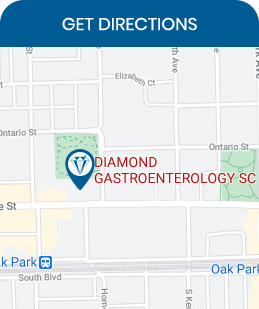Ulcerative Colitis Treatment Specialist Q&A
At Diamond Gastroenterology, we provide ulcerative colitis treatment to any individual dealing with visible symptoms of rectal pain or bleeding, dehydration, diarrhea, fever, and anemia. For an appointment, please feel free to call us or schedule one through our website. We serve patients from Oak Park, IL and surrounding areas.


Additional Services We Offer
▸ Endoscopy
▸ IBS Treatment
▸ Crohn’s Disease
▸ Ulcerative Colitis
▸ Abdominal Pain
▸ Colonoscopy
▸ Rectal Bleeding
▸ Colon Cancer Screening
▸ Procedures
▸ Specialties
Additional Services We Offer
▸ Endoscopy
▸ IBS Treatment
▸ Crohn’s Disease
▸ Ulcerative Colitis
▸ Abdominal Pain
▸ Colonoscopy
▸ Rectal Bleeding
▸ Colon Cancer Screening
▸ Procedures
▸ Specialties





